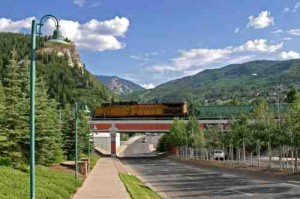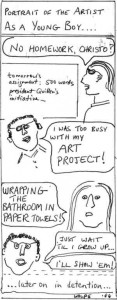Brief by Allen Best
Real Estate – October 2006 – Colorado Central Magazine
After two phenomenal years in nearly every resort valley of the West, the real estate market this year has slowed in some places. But almost everywhere, prices continue to rise.
Places affected by slow-downs include Crested Butte. That town’s real estate transfer tax is projected to yield $1.3 million this year, compared to $2 million last year.
“A year to a year and a half ago, sellers were getting full price,” says Justin Feder, president-elect of the Gunnison Country Association of Realtors. “Now, if a buyer comes in, (he or she) can negotiate.”
One trend reported by the Crested Butte News is for locals to cash out from Crested Butte, then move 29 miles downvalley to Gunnison, where prices are lower.
In Aspen, the volume of sales has also fallen, but prices continue to rise crazily. Two years ago prices rose 5 to 15 percent and last year they rose 15 to 25 percent. But this year, agent Robert Ritchie says, prices have inflated 25 percent in Aspen. In Snowmass Village, they have gone up 33 to 40 percent.
In Vail and the Eagle Valley, higher interest rates have caused sales at the lower end of the market to falter, but the high-end market remained vigorous through early summer. As of June, total sales were 2 percent above last year’s record clip, when $2.8 billion in sales were recorded in Eagle County (which includes several Aspen suburbs). Prices continue to rise there, and with the higher end more active, the average sales price through June of this year was up 26 percent. Last year, average sales prices were $722,000. This year they’ve been $911,000.
“It’s not as frenetic as last year, but I’m still plenty busy,” one agent told the Mountain Town News. However, the number of properties for sale is now swelling once again.
No particular worries are evident in any of the reports, because the long-term story is of continued immigration into mountain valleys of the West, particularly by people from cities in the East. That emigration is presumably being pushed by the imminent retirement of Baby Boomers.


